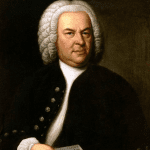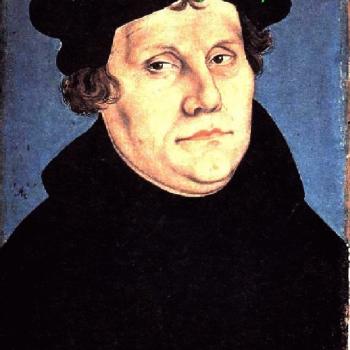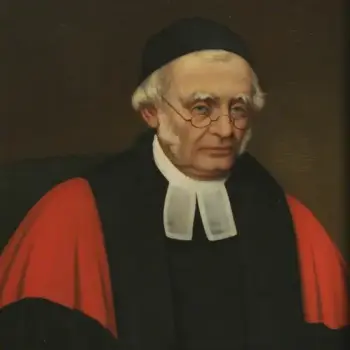
From a Facebook discussion on my page: 4 January 2014. Words of Dr. Edwin Woodruff Tait (Anglican Church historian then; possibly Catholic by now) will be in blue, Matthew’s in green, Toni Aceto’s in purple, Charles Jones’ in brown, and Martin Bubba Wheaton’s in orange. The original discussion occurred underneath a link to the article, “Is Ecumenism a Heresy?” (Fr. Brian Harrison, Catholic Answers Magazine, 1-1-09).
*****
Matthew writes stuff like this on his Facebook page:
I don’t think there is such a thing as a good Novus parish out there, honestly, particularly when compared with a traditional parish. The new rite is so unbelievably deficient in nearly every way, I don’t understand how anyone who has the least sensus Catholicus could ever go to the Novus Ordo.” (12-31-13)
There is no reason for me to keep up with what the Pope says and does. For a while I actively avoided it, just as I did with JPII. There is no benefit for me to keep up with him. He is not going to say anything theologically (dogmatically or morally) that I am unaware of or that will improve my understanding. Or, he may, but the 99% of stuff I have to get through to find the nugget is not worth it (the idea behind simply not watching TV, even if there may be some good things on TV). I have my parish priests for the needs of my soul, so I have no need to keep up with what the Pope is doing — it is a net-negative endeavor.. . . if we had a Pope who was dedicated to restoring Tradition and the faith to the Church and world, it may be different. Today, practically — and even philosophically, ask the Bishop of Rome himself — it makes no sense to keep up with the latest ‘news’ from the Pope. (1-3-14)
Matthew, you don’t explain what you mean by “false ecumenism” (I’m assuming that Dave is going on more than just that post in his characterization of your position, but that’s between the two of you). However, if by “false ecumenism” you mean the kind described in the article as condemned by Pius XI, you are simply wrong as a matter of fact. I have spent some time in ecumenical circles–one of the professors at Duke Divinity School, where I got my Ph.D. was Geoffrey Wainwright, a major player in ecumenical dialogue and one of the authors of the text “Baptism, Eucharist, and Ministry,” which is one of the most important theological documents to come out of the work of the World Council of Churches. Wainwright simply didn’t fit the stereotype of an ecumenist I had grown up with. He was a good friend of then-Cardinal Ratzinger and very akin to him in theology in many ways. He was deeply committed to creedal orthodoxy and conservative on matters of sexual morality. He was strongly opposed to the kind of “lowest common denominator” ecumenism that many conservatives associate with the ecumenical movement.
Leslie Newbigin, perhaps the most eminent Protestant ecumenist of the 20th century, was a friend and mentor of Wainwright and of a very similar theological bent. These were not people who believed in watering down creedal orthodoxy or who disbelieved in the supernatural. And if anything, ecumenism today has moved away from the liberal model, which has proven itself bankrupt (it can only unite people who already don’t believe much, and on a practical level–not that that matters too much in itself–it clearly doesn’t deliver the kind of cultural vitality and numerical growth that it promised). In other words, I think that conservatives caricature ecumenism, at least if ecumenism is seen as a theological movement. If, on the other hand, it’s seen as a bureaucratic movement, there’s much truth in the caricature. And I think it’s become increasingly apparent that the bureaucratic “merger” model of ecumenism is bankrupt.
[reply to Matthew] More Catholic than the pope and the Church . . . That’s more than enough to justify being blocked from my page. On this page we think and talk like Catholics, and I aim to keep it that way. Matthew’s comment threw up a red flag, and sure enough, when I checked out his page, we see the same old radical Catholic reactionary rotgut. Bye, Matthew. I pray that you will see the folly of your ways in due course.
Matthew exhibits several absolutely classic, defining traits of the radical Catholic reactionary:
1) antipathy to the Novus Ordo [ordinary form / Pauline / “New”] Mass,
2) Dissing recent popes: Francis, JPII, while Benedict XVI is seen as an ally,
3) antipathy to ecumenism (which almost always is fueled by hostility to VCII, which highlighted ecumenism).
Legitimate mainstream “traditionalists” don’t do any of these. They may attack rampant abuses in Novus Ordo Masses (as I do myself). They may wonder about some things the pope says, but would never put it in these crass, “juvenile rebellious” terms, and they have questions about what legitimate ecumenism is, but they agree that there is such a thing.
Going to have to agree with Dave on this one – Matthew is a very nice guy in person but he does seem to have issues with pride, and putting the style of the Mass above the substance of the Mass. (Which is blasphemy of the VERY highest order, in that Jesus Himself is the substance of the Mass no matter how it is said.)
Even if expressed pridefully and inartfully, the substance of Matthew’s point about many novus ordo parishes is valid. But, traditional parishes have their issues too. Earlier this year I escaped from a traditional parish, glory to God. The Pharisaical attitude that runs rampant in those places is very disquieting, and the Pope would be justified in coming down hard on it in some way.
Given the choice between attending a rock music Mass, terrible in form, where the people are focusing on the Blessed Sacrament, or a traditional Mass which is perfect in form but where the people are all wagging their fingers and tongues at one another and looking down their noses at one another instead of worshipping the Lord, and the Priest is preaching nothing but judgment and damnation, one would almost be bound under pain of sin to attend the former. (Fortunately I am not forced to such a choice because after a long search I have found a novus ordo parish that says Mass very well.)
“Woe unto you, scribes and Pharisees, hypocrites! for ye tithe mint and anise and cummin, and have left undone the weightier matters of the law, justice, and mercy, and faith: but these ye ought to have done, and not to have left the other undone. “
There are extremes on both sides, which are equally wrong. “How narrow is the gate, and strait is the way that leadeth to life: and few there are that find it!” On the one side, there are those luvvy-duvvy, happy-slappy places where it’s all flowers and smiles and you’re ok, I’m ok, everyone is ok, God loves us all, no real truth is preached, and we’ll all be in heaven in the sweet by and by. I escaped from one of those too, glory to God again. But on the other side there are those who think they know better than the Pope, that they, not the Pope, get to decide how to interpret the magisterium and who talk about the “sensus Catholicus” or other such ridiculous nonsense that they’ve made up to justify themselves, and whose interpretations just so happen to match up with their personal preferences. (What a coincidence.) And there are parishes where as I said earlier nothing but judgment and damnation are preached, Priests literally tell you that God does not forgive you, and there is no love and mercy at all there, and people are more attentive to what you are wearing than to the Lord. (With the encouragement of the Priest, no less.)
It is up to us to avoid both places. The gate is narrow.
Dave, how is Benedict seen as an ally given this speech he gave at Cologne [World Youth Day] (which I’m afraid I have sometimes used, illegitimately and tendentiously, to justify not becoming Catholic): [link]
I know this is a rhetorical question–we both agree that the anti-ecumenists are reading what they want to into Benedict, just as liberals are doing with Francis. . . .
You answered your own question there, Edwin! Pope Benedict was and is the darling of both “traditionalists” and radical Catholic reactionaries because of his high interest in the liturgy. But interests and emphases do not totally define a person or pope, and he was in total harmony with the popes before and after him, including, very much so, ecumenical efforts.
Trying to make out that he was fundamentally different is as much of a dead end as the current mad campaign to define Pope Francis as a modernist. People need to refine their thinking if they are foolish enough to buy either of those lines. They are stuck in pharisaism (hyper-legalism and not being able to see the forest for the trees, or to see what is important).
David: is his thought, in your opinion, just the recycling of old heretical thought? Haven’t we all seen this before? My point in this comment is that I do believe that we have seen heretics disagreeing with the Church for centuries: these groups never completely die, they just transform and evolve with the times.
Protestants technically are not heretics. Catholics who reject Church teaching willfully and therefore reject their baptismal promises are indeed heretics CCC2089. “”Heresy is the obstinate post-baptismal denial of some truth which must be believed with divine and catholic faith, or it is likewise an obstinate doubt concerning the same.” I’m trying to read and understand more about heresy and how heretical thinking has affected the Church. I do think that this fundamentalist thinking that you are commenting on is a result of old heresies resurfacing (‘Old Catholicism”, “Feenyites”, and an improper response to the “Crisis in the Church” which has resulted from an influx of Modernism).
Toni,
It is radical Catholic reactionary thought, which comes from a stunted mentality that I just commented on in my last comment. I think it is a combination of legalistic pharisaism, hyper-rationalism, and lack of faith. Historically it goes back to the rigorist / separatist / schismatic sects like the Donatists, Montanists, Novatians, etc. That’s the background. But the thinking eventually takes on many characteristics of modernism: adoption of the principle of private judgment over against Catholic authority, cafeteria Catholicism, rampant dissent on arbitrary grounds . . . It’s not heretical as much as it is “quasi-schismatic.”
Thus, many who think like this today may quite possibly be on the road to literal schism with the SSPX or sedevacantism. Those of us who have observed these trends (I have for over 23 years), have seen it happen again and again.
Toni, you’re right of course that “material heresy” doesn’t necessarily involve a person in the moral guilt of “formal heresy,” but Protestantism is, by Catholic standards, materially heretical. Dave’s “serious heresy/partial heresy” distinction is not entirely felicitous, in my view (isn’t all heresy serious, and isn’t all heresy partial?), but clearly some such distinction needs to be made. One of the appeals of ecumenical “mere Christianity” Protestantism for me has been precisely that this distinction can be made more easily. What Dave calls “serious heresy” is what ecumenical Protestants would call heresy. What Dave calls “partial heresy” is what we (if I should still say “we,” which probably I shouldn’t) would call theological error that doesn’t amount to heresy. Some would say heresy/heterodoxy, and perhaps that’s the best terminology, even though in a sense they mean the same thing.
The initial protestants who were Catholic were heretics. Modern day protestants by definition are not heretics.
Subjectively, no, but objectively, they hold to many heretical tenets. Edwin correctly observes: “Protestantism is, by Catholic standards, heretical.” I’m agreeing more with him in this discussion (a traditional Anglican) than I am with Matthew: a radical Catholic reactionary. And that’s because Edwin thinks ecumenically, as I do, whereas Matthew thinks in quasi-schismatic and rigorist and pharisaical terms.
So, e..g, Trent anathematizes those who deny that baptism is necessary for salvation (Canon V), and who deny that it regenerates, etc. Those who believe such things are heretics insofar as they are in error. This would include many Protestants who think baptism is merely symbolic (Baptists, most pentecostals, a good number of evangelicals, Anabaptists, Mennonites, etc.).
So they are “partial heretics” in that respect and many others, from a Catholic perspective, yet still Christians because they have been validly baptized, despite their wrong interpretation of that.
Isn’t being ecumenical dialoguing with others? Keeping the channels open. It doesn’t necessarily mean that you AGREE, it means that you keep the doors open for respectful dialogue. In Pope Francis’ words in July: “When leaders in various fields ask me for advice, my response is always the same: dialogue, dialogue, dialogue. It is the only way for individuals, families, and societies to grow, the only way for the life of peoples to progress, along with the culture of encounter, a culture in which all have something good to give and all can receive something good in return. Others always have something to give me, if we know how to approach them in a spirit of openness and without prejudice.”
Exactly right, Toni. It’s seeking first, to correctly understand those of other Christian groups. We discover that we have much more in common than we had supposed. And we build on that and rejoice in the real unity that we have.
I would actually define “ecumenical” as the claim that the agreements among validly baptized Christians who believe in the Trinity and the Incarnation are more fundamental than the disagreements. That’s what I take Dave to be expressing by his serious/partial distinction. All other Christian doctrines are in some sense developments from the Incarnation and dependent on it. People who deny the Real Presence, or refuse to venerate Mary, or reject icons, or reject apostolic succession or the Papacy, have an inadequate understanding of the implications of the Incarnation. But when you run up against people who deny the Incarnation itself, you don’t have that common ground. And I think that’s where Toni’s definition comes in. We should have dialogue with everyone. But ecumenism, in the Christian sense, refers specifically to dialogue that’s founded on our common faith in Christ as God Incarnate.
In the common usage of the Church, “Nicene Creed” means “Niceno-Constantinopolitan Creed.” This is of course technically inaccurate, but unless there’s a sect of “Nicene primitivists” running around that I haven’t heard of who reject the innovations of Constantinople, I can’t see that it matters theologically.
The Nicene Creed is a good starting point, Dave, and one standard I have always utilized to determine who is a Christian and who is not: though the baptismal regeneration clause does not fit many Protestants. That’s the biggest “sticking point” there.
I agree pretty much with Edwin’s comment (second one back). That’s not to deny that there are extremely important things that Protestantism omits, and, e.g., its rule of faith has very serious consequences, including a denial of ultimately binding Church authority. But by and large, I agree.
My concerns with Protestantism are not so much what it teaches, but what it fails to teach and grasp: what it omits. Those elements are what made me become a Catholic, because my already vigorous evangelical faith didn’t include them and I wanted all of apostolic Christianity: once I started to grasp what it was in its full colors.
Martin Bubba Wheaton wrote (then apparently withdrew the comment):
As a Dominican scholar once told us, ‘If anyone can demonstrate to me how we can go to calling someone a heretic to a ‘brother in Christ’ (without the heretic changing one iota) can be said to be reasonably in keeping with Church teaching, I will give them $10!’
That’s easy as pie. There are serious heretics (like Arius, who denied the Trinity) and partial heretics (like Protestants). “Heresy” literally means “pick and choose.” But the latter can be and are called “brothers in Christ” by the Church, because of their trinitarian baptism, which incorporates them into the Church (or does that have to be defended, too?). They are Christians; in Christ.
Nor is this notion a novel thing. It goes back to the Augustine-Donatist controversy, where Augustine and the Church decided against rebaptism, and Aquinas, and Trent. Canon IV on Baptism, Council of Trent, recognizes as “true baptism” that “which is even given by heretics in the name of the Father and of the Son and of the Holy Ghost.” That ain’t modernist garbage (that many folks falsely superimpose onto the orthodox Vatican II); it’s Trent!
Thus, “heretics” (in some respects) are still brothers in Christ due (primarily, but not exclusively) to their valid baptisms, which is the entrance rite into the Church and Body of Christ. Hence, “separated brethren”: which was also in use at least as far back as Leo XIII (iirc), and wasn’t new, either.
Martin can write to me privately for contact information, for me to receive my $10. Its the easiest money I ever made . . .
***
For many more articles on ecumenism, see my web page on that topic.
***
***
Photo credit: geralt (10-2-17) [Pixabay / Pixabay License]
***













